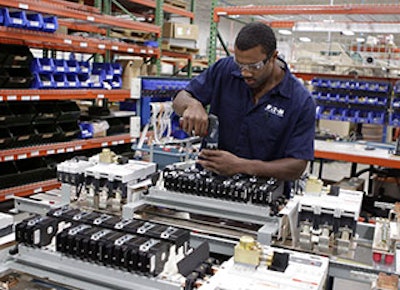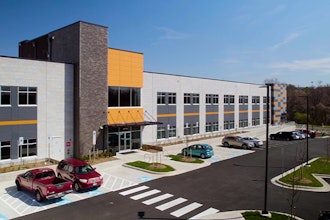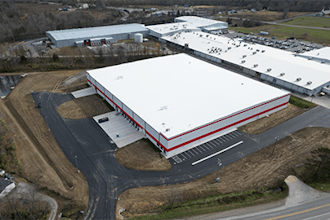
 On Tuesday, U.S. Senator Chris Coons’ (D-Del.) office announced a bipartisan bill designed to help schools strengthen their engineering programs to meet the growing demands of 21st century manufacturing.
On Tuesday, U.S. Senator Chris Coons’ (D-Del.) office announced a bipartisan bill designed to help schools strengthen their engineering programs to meet the growing demands of 21st century manufacturing.
The Manufacturing Universities Act of 2014, sponsored by Coons and Lindsey Graham (R-S.C.), would establish a program within the Commerce Department’s National Institute of Standards and Technology (NIST) charged with designating 25 schools as ‘Manufacturing Universities.’ Designated schools would receive $5 million per year for four years to meet specific goals, including focusing engineering programs on manufacturing, building new partnerships with manufacturing firms, growing training opportunities and fostering manufacturing entrepreneurship.
While jobs have been created in the manufacturing sector over the last few years, hundreds of thousands of jobs remain unfilled due to the lack of trained workers. According to Coons:
We need our engineers to fill the growing demand for manufacturing workers and accelerate manufacturing’s growth. This bipartisan bill would help us meet that challenge.
If you’ll recall, this isn’t the first time that the manufacturing sector has received some attention in the national spotlight this year. President Obama’s administration began work on the National Network for Manufacturing Innovation (NNMI) initiative which consists of regional hubs designed to accelerate the development and adoption of cutting-edge manufacturing technologies in order to make new, globally competitive products. Individually and together, these regional hubs will help to strengthen the global competitiveness of existing U.S. manufacturers, spur new ventures, and boost local and state economies.
Manufacturing.gov states that the president has asked Congress to authorize a one-time $1 billion investment — to be matched by private and other non-federal funds — to create an initial network of up to 15 Institutes for Manufacturing Innovation (IMIs). Over the span of 10 years, he has proposed building out NNMI to encompass 45 IMIs.
As far as the Manufacturing Universities Act of 2014 is concerned, it has been receiving major support from the Association of American Universities, the Association of Public and Land-grant Universities (APLU), the Information Technology and Innovation Foundation, the University of Delaware, Delaware State University, Clemson University, the University of Illinois, the University of Missouri, the University of Pennsylvania, Temple University, Drexel University, DOW Chemical and DuPont.
“APLU applauds Senator Coons and Senator Graham for their leadership on manufacturing issues and for recognizing the potential of our nation’s public research universities in contributing to the American manufacturing renaissance they envision,” said APLU president Peter McPherson. “We strongly support this initiative, as it helps pave the way for the advancement of high-tech manufacturing efforts across the country."
What do you think?
Is creating focused manufacturing training and innovation centers a smart move? Will these initiatives bring a resurgence to U.S. manufacturing? Are these simply political moves meant to pander to constituents? Is this a waste of time, money and resources? Tell us what you think by leaving your comments below.






















